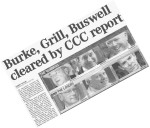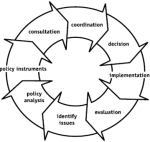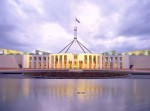Category Archives: Parliament
Queensland’s New Opposition Frontbench
 Queensland’s new Liberal National Party Opposition Leader Deb Frecklington announced her new frontbench last Friday 15 December 2017.
Queensland’s new Liberal National Party Opposition Leader Deb Frecklington announced her new frontbench last Friday 15 December 2017.
They are:
| Deb Frecklington | Opposition Leader and Shadow Minister for Trade |
| Tim Mander | Deputy Opposition Leader and Shadow Treasurer |
| Andrew Powell | Shadow Minister for State Development, Manufacturing, Infrastructure and Planning |
| Fiona Simpson | Shadow Minister for Employment and Small Business Shadow Minister for Training and Skills Development |
| Ros Bates | Shadow Minister for Health and Ambulance Services Shadow Minister for Women |
| Jarrod Bleijie | Shadow Minister for Education and Shadow Minister for Industrial Relations, Manager of Opposition Business |
| David Janetzki | Shadow Attorney-General and Shadow Minister for Justice |
| Steve Minnikin | Shadow Minister for Transport and Main Roads |
| Dale Last | Shadow Minister for Natural Resources and Mines, Shadow Minister for Northern Queensland |
| Trevor Watts | Shadow Minister for Police and Counter Terrorism, Shadow Minister for Corrective Services |
| David Crisafulli | Shadow Minister for Environment, Science and the Great Barrier Reef, Shadow Minister for Tourism |
| Tony Perrett | Shadow Minister for Agricultural Industry Development and Fisheries and Forestry |
| Michael Hart | Shadow Minister for Housing and Public Works, Shadow Minister for Energy, Shadow Minister for Innovation and Digital Technology |
| Ann Leahy | Shadow Minister for Local Government |
| Dr Christian Rowan | Shadow Minister for Communities and Shadow Minister for Disability Services and Seniors, Shadow Minister for Aboriginal and Torres Strait Islander Partnerships, Shadow Minister for the Arts |
| John-Paul Langbroek | Shadow Minister for Sport & Racing and Shadow Minister for Multicultural Affairs, Shadow Minister for the Commonwealth Games |
| Stephen Bennett | Shadow Minister for Child Safety, Youth and Shadow Minister for the Prevention of Domestic and Family Violence, Shadow Minister for Veterans |
| Lachlan Millar | Shadow Minister for Fire, Emergency Services and Volunteers |
| Shadow Assistant Ministers | |
| Sam O’Connor | Shadow Assistant Minister to the Opposition Leader and Shadow Assistant Minister for Youth |
| Dan Purdie | Shadow Assistant Minister for Treasury |
| David Batt | Shadow Assistant Minister for State Development |
| Simone Wilson | Shadow Assistant Minister for Education |
| Brent Mickelberg | Shadow Assistant Minister for Tourism Industry Development |
You can download a list with short biographies here http://bit.ly/2CVhNAY, and if you missed last week’s biographies of the new Government, that can be downloaded here.
Queensland Government: New Labor Ministry
The re-elected Queensland Labor Premier Annastacia Palaszczuk has announced her full Ministry on Monday, 11 December 2017, after announcing key economic portfolios a day earlier (see here). Cabinet will be sworn in on Tuesday 12 December.
You can download short biographies of Cabinet members here http://bit.ly/2jsOJMk.
Cabinet has been expanded to 18, and there are three new Ministers, to replace the retiring Bill Byrne and Curtis Pitt who is to become Speaker: the new faces are Di Farmer, Member for Bulimba, Craig Crawford, Member for Barron River, while Stirling Hinchliffe, Member for Sandgate, returns to Cabinet.
Of the Cabinet of 18, 9 are women. 9 are from the Left Faction, 6 are from the Labor Forum (often called “Right” or “AWU”) faction, and 3 are from the Labor Unity (“Old Guard”) faction.
Ministers are:
- Annastacia Palaszczuk, Premier, Minister for Trade*;
- Jackie Trad, Deputy Premier, Treasurer, Minister for Aboriginal and Torres Strait Islander Partnerships
- Cameron Dick, Minister for State Development, Infrastructure and Planning, Minister for Manufacturing
- Kate Jones, Minister for Innovation, Minister for Tourism Industry Development, Minister for the Commonwealth Games
- Yvette D’Ath, Attorney General and Minister for Justice
- Steven Miles, Minister for Health and Minister for Ambulance Services
- Grace Grace, Minister for Education and Minister for Industrial Relations
- Mark Bailey, Minister for Transport and Main Roads
- Anthony Lynham, Minister for Natural Resources, Mines and Energy
- Mick de Brenni, Minister for Housing and Public Works, Minister for Digital Technology, Minister for Sport
- Shannon Fentiman, Minister for Employment and Small Buiness, Minister for Training and Skills Development
- Leeanne Enoch, Minister for Environment and the Great Barrier Reef, Minister for Science, Minister for the Arts
- Mark Ryan, Minister for Police and Minister for Corrective Services
- Coralee O’Rourke, Minister for Communities and Minister for Disability Services and Seniors
- Mark Furner, Minister for Agricultural Industry Development and Fisheries
- Stirling Hinchliffe, Minister for Local Government, Minister for Racing, Minister for Multicultural Affairs
- Di Farmer, Minister for Child Safety, Youth and Women, Minister for the Prevention of Domestic and Family Violence
- Craig Crawford, Minister for Fire and Emergency Services
The Premier also announced he appointment of five Assistant Ministers, each with both a policy portfolio and a regional focus:
- Jennifer Howard, Assistant Minister for Veterans Affairs and Assistant Minister of State (Ipswich)
- Glenn Butcher, Assistant Minister for Treasury (Gladstone)
- Julieanne Gilbert, Assistant Minister for State Development (Mackay)
- Brittany Lauga, Assistant Minister for Education (Keppel)
- Meaghan Scanlon, Assistant Minister for Tourism Industry Development (Gold Coast)
* Corrected from original post
Queensland Election 2017 – What Happens Now?
 We need a State Government, we need a Premier, and we need Ministers – but no-one can be absolutely certain yet about who is to be a member of the Queensland Legislative Assembly: there are at five or six seats still in doubt, and while Labor says they are confident of achieving a majority in their own right, they (and everyone else) are waiting for final results.
We need a State Government, we need a Premier, and we need Ministers – but no-one can be absolutely certain yet about who is to be a member of the Queensland Legislative Assembly: there are at five or six seats still in doubt, and while Labor says they are confident of achieving a majority in their own right, they (and everyone else) are waiting for final results.
Of the seats where results are clear, no Party yet has a majority of the Parliament.
Postal votes – and possibly recounts – will determine the final outcome of in-doubt seats, and receipt of outstanding postal vote closes at 6.00 pm on Tuesday 5 December. It’s also possible postal votes may overturn current expectations of seat-by-seat results, and throw more seats into the too-close-to-call pile – postal votes are being counted day-by-day, and new tallies in undecided seats are being announced daily.
Once postal votes are all in and all counted, the Electoral Commission of Queensland (ECQ – see http://www.ecq.qld.gov.au) will determine whether they need further recounting in any seat – they’ve been doing check counting all along, so a full recount will be reserved for the very closest seats. That might take a day or two, or ECQ may determine there is no need.
If there’s no recount needed, it’s only after Tuesday the various Parties with members in the Assembly (Australian Labor Party, Liberal National Party, Katter’s Australian Party, One Nation Party, and perhaps the Greens) will hold meetings to determine who controls the Parliament and the Government, and who takes on which roles.
If Labor has a majority, we can expect a meeting of the Labor caucus in the days immediately after 5 December – and immediately after the caucus meeting we could expect a returned Premier Annastacia Palaszczuk to announce her new Cabinet.
If Labor doesn’t have a majority, depending on how far short they fall it may take several days for a majority coalition to be stitched together – or possibly a minority Government – so we may not know who is our Government, and who is Premier, and a Minister, until the week of 11 December.
The Brisbane Times website has a pretty good summary of where things are http://www.brisbanetimes.com.au/queensland-election-2017-results and they keep it reasonably up to date.
Queensland Election 2017 – Sunday’s Status
 Labor seems likely to secure 48 seats (out of 93) in Queensland’s Legislative Assembly, plus or minus one – which is a small but clear majority.
Labor seems likely to secure 48 seats (out of 93) in Queensland’s Legislative Assembly, plus or minus one – which is a small but clear majority.
But, be cautious – there’s only 72.2% of the votes counted so far, and the notional two-candidate count in some seats has counted the wrong two candidates!
Ben Rau from the Tallyroom has an excellent summary of the current status of counting as at Sunday 26 November 2017, including seats likely won and lost for each of One Nation, the LNP, Katter Party and Greens. You can access his summary here http://www.tallyroom.com.au/32465.
Queensland Government is in “Caretaker Mode”
 Now the State election has been called – see https://ethicalconsultingservices.wordpress.com/2017/10/29/queensland-state-election-basics/ – the Government moves into what is called “Caretaker Mode”.
Now the State election has been called – see https://ethicalconsultingservices.wordpress.com/2017/10/29/queensland-state-election-basics/ – the Government moves into what is called “Caretaker Mode”.
Caretaker Mode is all about both maintaining public sector impartiality, and ensuring no decisions or commitments are made which will bind a new, possibly unwilling Government, post-election.
Many public servants interpret this incredibly widely – far more so than is intended or appropriate, and this can be a real nuisance for anyone trying to do business with the State Government.
Official guidelines for the conventions which apply during the caretaker period are set out in the Cabinet Handbook, section 9, here https://www.premiers.qld.gov.au/publications/categories/policies-and-codes/handbooks/cabinet-handbook/caretaker-conventions.aspx.
In summary:
- Caretaker conventions are merely conventions and not binding at law – but are nearly always adhered to;
- Caretaker period starts the moment the election is called and lasts until either te result is clear or a new Government appointed;
- Things to avoid during the caretaker period: appointments of significance, implementing new policies, entering into major contracts or undertakings;
- Normal Departmental operations are to continue, but with care to ensure there’s no presumption about who will win the election;
- Departments should not at Ministerial request develop new policy initiatives;
- Opposition access to public servants is through requests to the Minister and any such discussions are confidential, but public servants may not discuss the merits of policy options with the Opposition and should keep no official notes;
- Departments prepare two sets of briefing documents for the incoming Government: one for a returned Government, and the other for a new Government;
- All Cabinet documents are readied for destruction;
- All Bills in Parliament lapse and must start again from scratch after the election, and any Acts not yet proclaimed by the Governor must await the intentions of the incoming Government. In some circumstances subordinate legislation may be approved;
- The Premier will determine whether Government advertising campaigns continue – anything highlighting the role of Ministers or covering matters of political controversy are usually stopped;
- Ministers generally don’t go to Council of Australian Governments meetings which occur during the caretaker period.
In detail:
Here’s a downloadable PDF file for your reading pleasure, courtesy of Ethical Consulting Services! http://bit.ly/2hnbr4p
Queensland State Election 2017 Basics
 The Queensland State Election was called on Sunday 29 October, and Election Day will be Saturday 25 November 2017.
The Queensland State Election was called on Sunday 29 October, and Election Day will be Saturday 25 November 2017.
Here are three reasons it’s historic:
- it is the last time the Government gets to pick the Election Day – after this one, Queensland moves to a fixed, four-year election term;
- it is the first time preferences will be compulsory since 1992, when they were made optional*; and
- the number of seats has been increased from 89 to 93, which means to win Government a party or coalition needs 47 or more seats.
New or updated enrolments close on 3 November, and nominations of candidates close on 7 November. If you need to update your enrolment the best place to do it is via the links on this page: www.ecq.qld.gov.au/voters-and-voting/enrolment.
Because the number of seats has increased, electoral boundaries have been changed all over the place. Here’s a table of changes driven by new boundaries, from psephologist Antony Green www.abc.net.au/news/elections/qld-redistribution-2017/#ChangeTable.
Green’s analysis of the political impact is here www.abc.net.au/news/elections/qld-redistribution-2017/#PoliticalImpact, and his new electoral pendulum is here www.abc.net.au/news/elections/qld-redistribution-2017/#Pendulum.
You can access his overall guide to the election here http://www.abc.net.au/news/qld-election-2017/.
… and here’s a link to the latest polling http://en.wikipedia.org/wiki/Queensland_state_election,_2017#Opinion_polling.
* Corrected – thanks to Cameron Milliner for noticing the error!
8 August 2017: Opportunity for Government, or for Litigation?
Australia is supposed to have seventy-six Senators: right now we have no more than seventy-four, possibly only seventy-two, and possibly far fewer, because of application of s44 of the Australian Constitution. And when Parliament resumes on 8 August, expect political and legal fireworks.
This reduced number of Senators is important, because it might make it easier for the Government to get their legislation passed.
Here’s why: while Australia’s Liberal National Party Coalition government has the support of a majority in the House of Representatives, no legislation can pass without the support of a majority in the Senate, where the Government is in a minority. This means all legislation which passes through the Senate, and subsequently becomes law, must garner support from non-government parties, and with fewer Senators the total number of Senators required to support legislation reduces.
If we indeed have 74 Senators,
- 29 are from the Coalition,
- 26 are from Labor,
- 7 from the Greens,
- 4 are from One Nation,
- 3 from the Xenophon Team, and
- one each are from the Liberal Democrats (Leynholm), Justice Party (Hinch), Australian Conservatives (Bernardi), Jacqui Lambie Network, and independent Gichuhi (who is ex-Family First).
With only seventy-four Senate votes in play, to secure Senate passage of government legislation, the Liberal National Party Government needs nine votes from amongst the 19 cross-benchers; Labor needs 12 to block the passage of any legislation, or pass their own resolutions.
The Government now needs the support of one less non-Government Senator than before, to see legislation passed, and this situation will continue for months as the process of replacing ineligible Senators isn’t quick – see https://ethicalconsultingservices.wordpress.com/2017/07/17/ludlam-senate/. This presents the Government with opportunities to advance unpopular legislation through the Senate – the two ineligible “Senators” are seen as more likely to have opposed components of the Government’s legislative program.
We are down to no more than seventy-four Senators because two Greens Party Senators have acknowledged they are ineligible – see www.couriermail.com.au/news/queensland/queensland-government/queensland-greens-senator-larissa-waters-resigns-over-dual-citizenship/news-story/ecb99e946835145fd8f6dacdbf55e131. We may have only seventy-two Senators because detailed questions have been raised about the eligibility of two others – see www.brisbanetimes.com.au/federal-politics/political-news/malcolm-roberts-expert-anne-twomey-believes-one-nation-senator-may-have-breached-constitution-20170727-gxkeol.html and www.brisbanetimes.com.au/federal-politics/political-news/the-dissenting-argument-from-a-former-governorgeneral-that-could-save-matt-canavans-skin-20170727-gxjxkr.html.
Both Senators Roberts (One Nation Party) and Canavan (Liberal National Party) say they are eligible. There’s no doubt this will be tested in the Court of Disputed Returns – probably at the same time as determinations are made about Larissa Waters’ and Scott Ludlum’s replacements.
The Australian Senate resumes on 8 August 2017, and we can be very sure if either Senator Roberts or Senator Canavan seek to exercise a vote, or perhaps even take their seat, someone is going to go to Court, claim those Senators are ineligible, and seek via legal action to stop them acting as a Senator.
And to add to the potential for chaos, while it is a typically over-blown and under-researched article, the Australian newspaper has questioned the eligibility of 21 Members of Parliament further, from all of the Liberal Party, the National Party, and Australian Labor Party: www.theaustralian.com.au/national-affairs/mp-dual-nationality-fiasco-extends-to-bloodlines/news-story/5ad03ba3d47cf4eae0a5b1066ea5c59b?login=1 (paywalled).
In the House of Representatives, the Government has only a one-seat majority – should any one Government member* in the House acknowledge ineligibility, or be found ineligible, they will lose their working majority in the House, the capacity of the Government to govern at all becomes questionable, and we may be headed to a very early election.
By 8 August, all of our Parliamentary parties need to have their plans in place for how to react: because the success of the Government’s legislative program, or the very existence of the Turnbull Government, might hinge on the outcome, there’s little hope of bipartisanship.
Here’s a link to information on the Australian Electoral Commission website explaining eligibility laws: www.aec.gov.au/About_AEC/Publications/backgrounders/constitutional-disqual-intending-candidates.htm
* Or one more Government member than non-Government members.












 The Basics
The Basics





